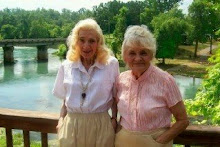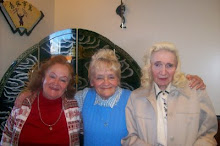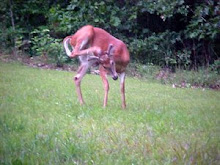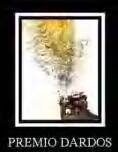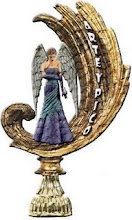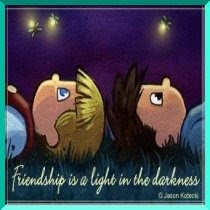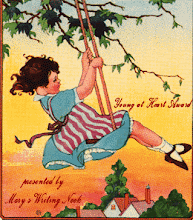 When my nineteen-year-old mother died, a few weeks after giving birth to me, I inherited her cat, Paprika. He was a gentle giant, with deep orange stripes and yellow eyes that gazed at me tolerantly as I dragged him around wherever I went. Paprika was ten years old when I came into this world. He had been held and loved by my mother for all ten years of his life, while I had never known her. So I considered him my link to her. Each time I hugged him tightly to my chest, I was warmed by the knowledge that she had done so, too.
When my nineteen-year-old mother died, a few weeks after giving birth to me, I inherited her cat, Paprika. He was a gentle giant, with deep orange stripes and yellow eyes that gazed at me tolerantly as I dragged him around wherever I went. Paprika was ten years old when I came into this world. He had been held and loved by my mother for all ten years of his life, while I had never known her. So I considered him my link to her. Each time I hugged him tightly to my chest, I was warmed by the knowledge that she had done so, too."Did you love her a lot?" I would often ask Paprika, as we snuggled on my bed.
"Meow!" He would answer, rubbing my chin with his pink nose.
"Do you miss her?"
"Meow!" His large, yellow eyes gazed at me with a sad expression.
"I miss her too, even though I didn’t know her. But Grandma says she is in heaven, and she is watching over us from there. Since we are both her orphans, I know it makes her happy that we have each other," I would always say, for it was a most comforting thought to me.
"Meow!" Paprika would respond, climbing on my chest and purring.
I held him close, tears welling in my eyes. "And it makes me so very happy that we have each other." Paprika’s orange paw reached up and touched my face gently. I was convinced he understood me, and I knew I understood him.
At that time we lived in the country of my birth, Hungary, and I was being raised by my maternal grandparents because World War II had taken my young father away, too. As I grew, the war intensified, and soon we were forced to become wanderers in search of safer surroundings.
In the spring of 1944, when I was eight, Paprika and I snuggled in the back of the wooden wagon as we traveled around our country. During the numerous air raids of those terrible times, when we had to scramble to find safety in a cellar, closet or ditch, he was always in my arms, for I refused to go without him. How could I, when one of the first stories I was ever told as a child was that of my dying mother begging her parents to take care of her cat as well as her baby?
After the Christmas of 1944, when we were almost killed in a bombing of the city we were in, Grandfather decided that we would be safer in a rural area. Soon, we settled in a small house that had a cemetery as its neighbor. Here Grandfather, with the help of some neighbors, built a bunker away from the house, and on an early spring day in 1945, we spent the entire night in the bunker. Paprika was with me, of course, because once again, I refused to go without him.
Warplanes buzzed, tanks rumbled, and bombs whistled and exploded over our heads all night while I held on to Paprika, and my grandmother held on to the both of us, praying the entire time. Paprika never panicked in that bunker. He just stayed in my arms, comforting me with his presence.
Finally everything grew still, and Grandfather decided it was safe to go back to the house. Cautiously, we crept out into the light of early dawn and headed towards the house. The brush crackled under our feet as we walked. I shivered, holding on to Paprika tightly. Suddenly, there was a rustle in the bushes just ahead. Two men jumped out and pointed machine guns directly at us.
"Stoi!" one of the men shouted. We knew the word meant, "Stop!"
"Russians!" Grandfather whispered. "Stand very still, and keep quiet."
But Paprika had leapt out of my arms when the soldier shouted, so instead of listening to Grandfather, I darted between the soldiers and scooped her up again.
The tall, dark-haired young soldier approached me. I cringed, holding Paprika against my chest. The soldier reached out and petted him gently.
"I have a little girl about your age back in Russia, and she has a cat just like this one," he said, smiling at us. I looked up into a pair of kind brown eyes and my fear vanished. My grandparents sighed with relief! We found out that morning that the Soviet occupation of our country was in progress.
Many atrocities occurred in our country in the following months, but because the young soldier took a liking to my cat and me, we were spared. He visited often, bringing treats for Paprika and me. Then one day, a few months later, he had some sad news.
"I’ve been transferred to another area, malka (little one), so I won’t be able to come and visit anymore. But I have a gift for you," he said, reaching into his pocket and pulling out a necklace. It was beautiful, and had a turquoise Russian Orthodox cross on it. He placed it around my neck.
"You wear this at all times, malka. God will protect you from harm. And you take good care of your kitty."
I hugged him tight, and then watched him leave, tears welling in my eyes.
In the trying weeks and months that followed, Paprika’s love made things easier for me to bear, for he rarely left my side. He was my comfort, my best friend.
By the fall of 1945, Grandfather, who had spoken up about the atrocities taking place in our country, had gone into hiding, to avoid being imprisoned as a dissident by the new communist government.
Grandmother and I prepared for a solemn Christmas that turned into my worst nightmare when I awoke on Christmas morning to find Paprika, curled up next to me, lifeless and cold. I picked up his lifeless body and holding it close to me, sobbed uncontrollably. He was nineteen years old, and I was nine.
"I will always love you, Paprika. I will never give my heart to another cat," I vowed through my tears. "Never, ever!"
"Paprika’s spirit is in heaven now, with your Mama, sweetheart," my grandmother said, trying to comfort me. But my heart was broken on that terrible Christmas Day in 1945.
Grandfather stayed hidden until the fall of 1947, when we were finally able to escape our communist country by hiding among some ethnic Germans, who were being deported into Austria. In Austria, we landed in a refugee camp where we lived for four years.
These were difficult times for me and I longed for Paprika often. I saw other people’s cats and knew it would be so comforting to feel a warm furry creature purring in my arms. But my loyalty to Paprika—mixed up in my mind with loyalty to my mother—never wavered. I had made a vow and I would keep it.
A ray of hope pierced this darkness when eventually we were accepted for immigration to the United States. In September 1951, we boarded an old Navy ship, on our way to America.
That year, we spent our first Christmas in the United States. The horrors of war, the four years of hardship in a refugee camp, were behind us now, and a life filled with fresh possibilities, lay ahead.
On that Christmas morning, I awoke to a tantalizing aroma wafting throughout the house. Grandmother was cooking her first American turkey. Grandfather, meanwhile, pointed to one of the presents under the Christmas tree that seemed alive, for it was hopping around to the tune of "Jingle Bells" playing on the radio. I rushed over, pulled off the orange bow, and took the lid off the box.
"Meow," cried the present, jumping straight into my lap and purring. It was a tiny, orange tabby kitten, and when I looked into its yellow eyes, the vow I had made in 1945 crumbled like dust and fell away. I was a new person in a new country. Holding the cat close, I let the sweetness of love fill my heart once again.
That Christmas Day, I do believe my mother smiled down at us from heaven approvingly, while Paprika’s spirit purred joyfully at her side.
-----
This story has been published in "Chicken Soup for the Cat Lover's Soul," ("Angel Cats," "A Dickens of a Cat." ) Copyright (c) 2004 by Renie Burghardt.
Unfortunately, the only picture we have of that era is the one above. All others were lost during the war.
I hope you enjoyed the story. My family is here to help me celebrate my birthday, and of course, Thanksgiving. I woke up to streamers and Happy Birthday signs and balloons decorating my bedroom. I feel like a kid of 72! :-)
Friends, I will be somewhat absent from the world of blogging this week, but will be back the weekend.
To all celebrating the holiday, Happy Thanksgiving. And to everyone, have a wonderful week!
I also want to thank my Russian cousin Elena, in Ballarat, Victoria, Australia, for the lovely birthday gift and card. It arrived yesterday, and was such a surprise. Thank you Elena and Vlad!
And thank you so much for reading.
Blessings from the woods!



















